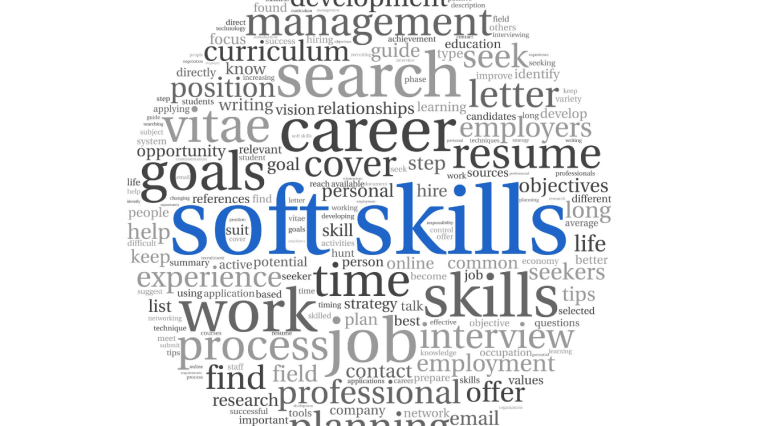In today’s competitive workplace, technical skills alone are not enough to secure leadership roles. Soft skills play a crucial role in differentiating leaders from followers. Developing these skills can help you navigate the complexities of leadership and advance your career. Here are eight essential soft skills that will help you get leadership roles at work.
8 Essential Soft Skills to Learn
Conflict Resolution
Conflict is inevitable in any workplace, but how it is managed can significantly impact team dynamics and overall productivity. Conflict resolution is a critical soft skill for leaders, as it involves navigating disagreements, mediating disputes, and finding amicable solutions. Leaders who excel in conflict resolution can maintain a positive work environment, foster collaboration, and ensure that conflicts do not escalate into larger issues. Effective conflict resolution requires active listening, empathy, patience, and the ability to remain neutral and objective.
Emotional Intelligence
Emotional intelligence (EI) is the ability to understand and manage your own emotions, as well as recognize and influence the emotions of others. High EI is associated with better communication, empathy, and stress management. Leaders with strong emotional intelligence can build stronger relationships, inspire and motivate their team, and handle challenging situations with grace. Key components of emotional intelligence include self-awareness, self-regulation, social awareness, and relationship management. Developing EI can lead to better decision-making, improved team morale, and higher levels of employee engagement.
Creativity
In a rapidly changing business landscape, creativity is an invaluable soft skill for leaders. Creativity involves thinking outside the box, generating innovative ideas, and approaching problems from new perspectives. Leaders who foster a creative environment encourage their team to experiment, take risks, and develop unique solutions. This not only drives innovation but also keeps the organization competitive. Cultivating creativity requires an open mind, curiosity, and a willingness to challenge the status quo.
Time Management
Effective time management is essential for leaders to balance multiple responsibilities and meet deadlines. Leaders who excel in time management can prioritize tasks, delegate efficiently, and avoid burnout. Good time management involves setting clear goals, planning and organizing tasks, and minimizing distractions. Techniques such as the Eisenhower Matrix, Pomodoro Technique, and time blocking can help leaders manage their time more effectively. By mastering time management, leaders can increase productivity, reduce stress, and create a more balanced work-life integration.
Persuasion
The ability to persuade others is a powerful tool for leaders. Persuasion involves convincing others to adopt a particular viewpoint, take action, or support a decision. Effective persuasion requires strong communication skills, credibility, and an understanding of the audience’s needs and motivations. Leaders who are persuasive can build consensus, drive change, and achieve organizational goals. To enhance persuasion skills, leaders should focus on active listening, crafting compelling messages, and using evidence and logic to support their arguments.
Team Building
Team building is a crucial soft skill for leaders, as it involves creating a cohesive and collaborative team environment. Leaders who excel in team building can bring diverse individuals together, foster trust and respect, and promote a sense of belonging. Effective team building requires clear communication, conflict resolution, and the ability to motivate and inspire team members. Activities such as team-building exercises, workshops, and regular feedback sessions can strengthen team dynamics and improve overall performance.
Cultural Competence
In today’s globalized workplace, cultural competence is an essential soft skill for leaders. Cultural competence involves understanding, respecting, and valuing diverse cultural backgrounds and perspectives. Leaders who are culturally competent can navigate cross-cultural interactions, avoid misunderstandings, and create an inclusive work environment. This skill requires open-mindedness, empathy, and a willingness to learn about different cultures. By developing cultural competence, leaders can enhance collaboration, drive innovation, and build stronger relationships with diverse stakeholders.
Delegation
Delegation is the ability to assign tasks and responsibilities to others effectively. Leaders who master delegation can optimize team performance, develop their team members’ skills, and focus on strategic priorities. Effective delegation involves identifying the right person for the task, providing clear instructions, and offering support and feedback. By delegating effectively, leaders can empower their teams, increase efficiency, and achieve better outcomes. Delegation also helps leaders avoid micromanagement and build a more autonomous and capable team.
By honing these eight essential soft skills, you can enhance your leadership capabilities and position yourself for success in leadership roles. These skills not only improve your effectiveness as a leader but also contribute to a positive and productive work environment.



